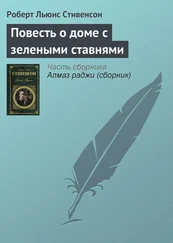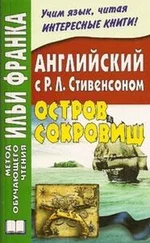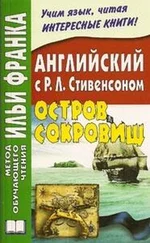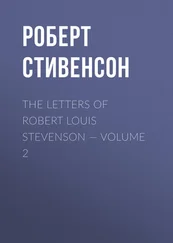Роберт Стивенсон - Vailima Letters
Здесь есть возможность читать онлайн «Роберт Стивенсон - Vailima Letters» — ознакомительный отрывок электронной книги совершенно бесплатно, а после прочтения отрывка купить полную версию. В некоторых случаях можно слушать аудио, скачать через торрент в формате fb2 и присутствует краткое содержание. Жанр: literature_19, foreign_antique, foreign_prose, на английском языке. Описание произведения, (предисловие) а так же отзывы посетителей доступны на портале библиотеки ЛибКат.
- Название:Vailima Letters
- Автор:
- Жанр:
- Год:неизвестен
- ISBN:нет данных
- Рейтинг книги:5 / 5. Голосов: 1
-
Избранное:Добавить в избранное
- Отзывы:
-
Ваша оценка:
- 100
- 1
- 2
- 3
- 4
- 5
Vailima Letters: краткое содержание, описание и аннотация
Предлагаем к чтению аннотацию, описание, краткое содержание или предисловие (зависит от того, что написал сам автор книги «Vailima Letters»). Если вы не нашли необходимую информацию о книге — напишите в комментариях, мы постараемся отыскать её.
Vailima Letters — читать онлайн ознакомительный отрывок
Ниже представлен текст книги, разбитый по страницам. Система сохранения места последней прочитанной страницы, позволяет с удобством читать онлайн бесплатно книгу «Vailima Letters», без необходимости каждый раз заново искать на чём Вы остановились. Поставьте закладку, и сможете в любой момент перейти на страницу, на которой закончили чтение.
Интервал:
Закладка:
Then off up the hill; Jack very fresh, the sun (close on noon) staring hot, the breeze very strong and pleasant; the ineffable green country all round – gorgeous little birds (I think they are humming birds, but they say not) skirmishing in the wayside flowers. About a quarter way up I met a native coming down with the trunk of a cocoa palm across his shoulder; his brown breast glittering with sweat and oil: ‘Talofa’ – ‘Talofa, alii – You see that white man? He speak for you.’ ‘White man he gone up here?’ – ‘Ioe (Yes)’ – ‘Tofa, alii’ – ‘Tofa, soifua!’ I put on Jack up the steep path, till he is all as white as shaving stick – Brown’s euxesis, wish I had some – past Tanugamanono, a bush village – see into the houses as I pass – they are open sheds scattered on a green – see the brown folk sitting there, suckling kids, sleeping on their stiff wooden pillows – then on through the wood path – and here I find the mysterious white man (poor devil!) with his twenty years’ certificate of good behaviour as a book-keeper, frozen out by the strikes in the colonies, come up here on a chance, no work to be found, big hotel bill, no ship to leave in – and come up to beg twenty dollars because he heard I was a Scotchman, offering to leave his portmanteau in pledge. Settle this, and on again; and here my house comes in view, and a war whoop fetches my wife and Henry (or Simelé), our Samoan boy, on the front balcony; and I am home again, and only sorry that I shall have to go down again to Apia this day week. I could, and would, dwell here unmoved, but there are things to be attended to.
Never say I don’t give you details and news. That is a picture of a letter.
I have been hard at work since I came; three chapters of The Wrecker , and since that, eight of the South Sea book, and, along and about and in between, a hatful of verses. Some day I’ll send the verse to you, and you’ll say if any of it is any good. I have got in a better vein with the South Sea book, as I think you will see; I think these chapters will do for the volume without much change. Those that I did in the Janet Nicoll , under the most ungodly circumstances, I fear will want a lot of suppling and lightening, but I hope to have your remarks in a month or two upon that point. It seems a long while since I have heard from you. I do hope you are well. I am wonderful, but tired from so much work; ’tis really immense what I have done; in the South Sea book I have fifty pages copied fair, some of which has been four times, and all twice written, certainly fifty pages of solid scriving inside a fortnight, but I was at it by seven a.m. till lunch, and from two till four or five every day; between whiles, verse and blowing on the flageolet; never outside. If you could see this place! but I don’t want any one to see it till my clearing is done, and my house built. It will be a home for angels.
So far I wrote after my bit of dinner, some cold meat and bananas, on arrival. Then out to see where Henry and some of the men were clearing the garden; for it was plain there was to be no work to-day indoors, and I must set in consequence to farmering. I stuck a good while on the way up, for the path there is largely my own handiwork, and there were a lot of sprouts and saplings and stones to be removed. Then I reached our clearing just where the streams join in one; it had a fine autumn smell of burning, the smoke blew in the woods, and the boys were pretty merry and busy. Now I had a private design: —
The Vaita’e I had explored pretty far up; not yet the other stream, the Vaituliga (g=nasal n, as ng in sing); and up that, with my wood knife, I set off alone. It is here quite dry; it went through endless woods; about as broad as a Devonshire lane, here and there crossed by fallen trees; huge trees overhead in the sun, dripping lianas and tufted with orchids, tree ferns, ferns depending with air roots from the steep banks, great arums – I had not skill enough to say if any of them were the edible kind, one of our staples here! – hundreds of bananas – another staple – and alas! I had skill enough to know all of these for the bad kind that bears no fruit. My Henry moralised over this the other day; how hard it was that the bad banana flourished wild, and the good must be weeded and tended; and I had not the heart to tell him how fortunate they were here, and how hungry were other lands by comparison. The ascent of this lovely lane of my dry stream filled me with delight. I could not but be reminded of old Mayne Reid, as I have been more than once since I came to the tropics; and I thought, if Reid had been still living, I would have written to tell him that, for, me, it had come true ; and I thought, forbye, that, if the great powers go on as they are going, and the Chief Justice delays, it would come truer still; and the war-conch will sound in the hills, and my home will be inclosed in camps, before the year is ended. And all at once – mark you, how Mayne Reid is on the spot – a strange thing happened. I saw a liana stretch across the bed of the brook about breast-high, swung up my knife to sever it, and – behold, it was a wire! On either hand it plunged into thick bush; to-morrow I shall see where it goes and get a guess perhaps of what it means. To-day I know no more than – there it is. A little higher the brook began to trickle, then to fill. At last, as I meant to do some work upon the homeward trail, it was time to turn. I did not return by the stream; knife in hand, as long as my endurance lasted, I was to cut a path in the congested bush.
At first it went ill with me; I got badly stung as high as the elbows by the stinging plant; I was nearly hung in a tough liana – a rotten trunk giving way under my feet; it was deplorable bad business. And an axe – if I dared swing one – would have been more to the purpose than my cutlass. Of a sudden things began to go strangely easier; I found stumps, bushing out again; my body began to wonder, then my mind; I raised my eyes and looked ahead; and, by George, I was no longer pioneering, I had struck an old track overgrown, and was restoring an old path. So I laboured till I was in such a state that Carolina Wilhelmina Skeggs could scarce have found a name for it. Thereon desisted; returned to the stream; made my way down that stony track to the garden, where the smoke was still hanging and the sun was still in the high tree-tops, and so home. Here, fondly supposing my long day was over, I rubbed down; exquisite agony; water spreads the poison of these weeds; I got it all over my hands, on my chest, in my eyes, and presently, while eating an orange, à la Raratonga, burned my lip and eye with orange juice. Now, all day, our three small pigs had been adrift, to the mortal peril of our corn, lettuce, onions, etc., and as I stood smarting on the back verandah, behold the three piglings issuing from the wood just opposite. Instantly I got together as many boys as I could – three, and got the pigs penned against the rampart of the sty, till the others joined; whereupon we formed a cordon, closed, captured the deserters, and dropped them, squeaking amain, into their strengthened barracks where, please God, they may now stay!
Perhaps you may suppose the day now over; you are not the head of a plantation, my juvenile friend. Politics succeeded: Henry got adrift in his English, Bene was too cowardly to tell me what he was after: result, I have lost seven good labourers, and had to sit down and write to you to keep my temper. Let me sketch my lads. – Henry – Henry has gone down to town or I could not be writing to you – this were the hour of his English lesson else, when he learns what he calls ‘long expessions’ or ‘your chief’s language’ for the matter of an hour and a half – Henry is a chiefling from Savaii; I once loathed, I now like and – pending fresh discoveries – have a kind of respect for Henry. He does good work for us; goes among the labourers, bossing and watching; helps Fanny; is civil, kindly, thoughtful; O si sic semper ! But will he be ‘his sometime self throughout the year’? Anyway, he has deserved of us, and he must disappoint me sharply ere I give him up. – Bene – or Peni-Ben, in plain English – is supposed to be my ganger; the Lord love him! God made a truckling coward, there is his full history. He cannot tell me what he wants; he dares not tell me what is wrong; he dares not transmit my orders or translate my censures. And with all this, honest, sober, industrious, miserably smiling over the miserable issue of his own unmanliness. – Paul – a German – cook and steward – a glutton of work – a splendid fellow; drawbacks, three: (1) no cook; (2) an inveterate bungler; a man with twenty thumbs, continually falling in the dishes, throwing out the dinner, preserving the garbage; (3) a dr – , well, don’t let us say that – but we daren’t let him go to town, and he – poor, good soul – is afraid to be let go. – Lafaele (Raphael), a strong, dull, deprecatory man; splendid with an axe, if watched; the better for a rowing, when he calls me ‘Papa’ in the most wheedling tones; desperately afraid of ghosts, so that he dare not walk alone up in the banana patch – see map. The rest are changing labourers; and to-night, owing to the miserable cowardice of Peni, who did not venture to tell me what the men wanted – and which was no more than fair – all are gone – and my weeding in the article of being finished! Pity the sorrows of a planter.
Читать дальшеИнтервал:
Закладка:
Похожие книги на «Vailima Letters»
Представляем Вашему вниманию похожие книги на «Vailima Letters» списком для выбора. Мы отобрали схожую по названию и смыслу литературу в надежде предоставить читателям больше вариантов отыскать новые, интересные, ещё непрочитанные произведения.
Обсуждение, отзывы о книге «Vailima Letters» и просто собственные мнения читателей. Оставьте ваши комментарии, напишите, что Вы думаете о произведении, его смысле или главных героях. Укажите что конкретно понравилось, а что нет, и почему Вы так считаете.









